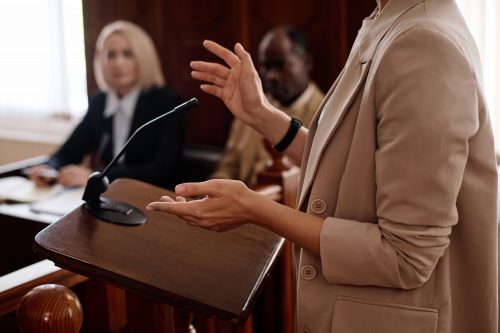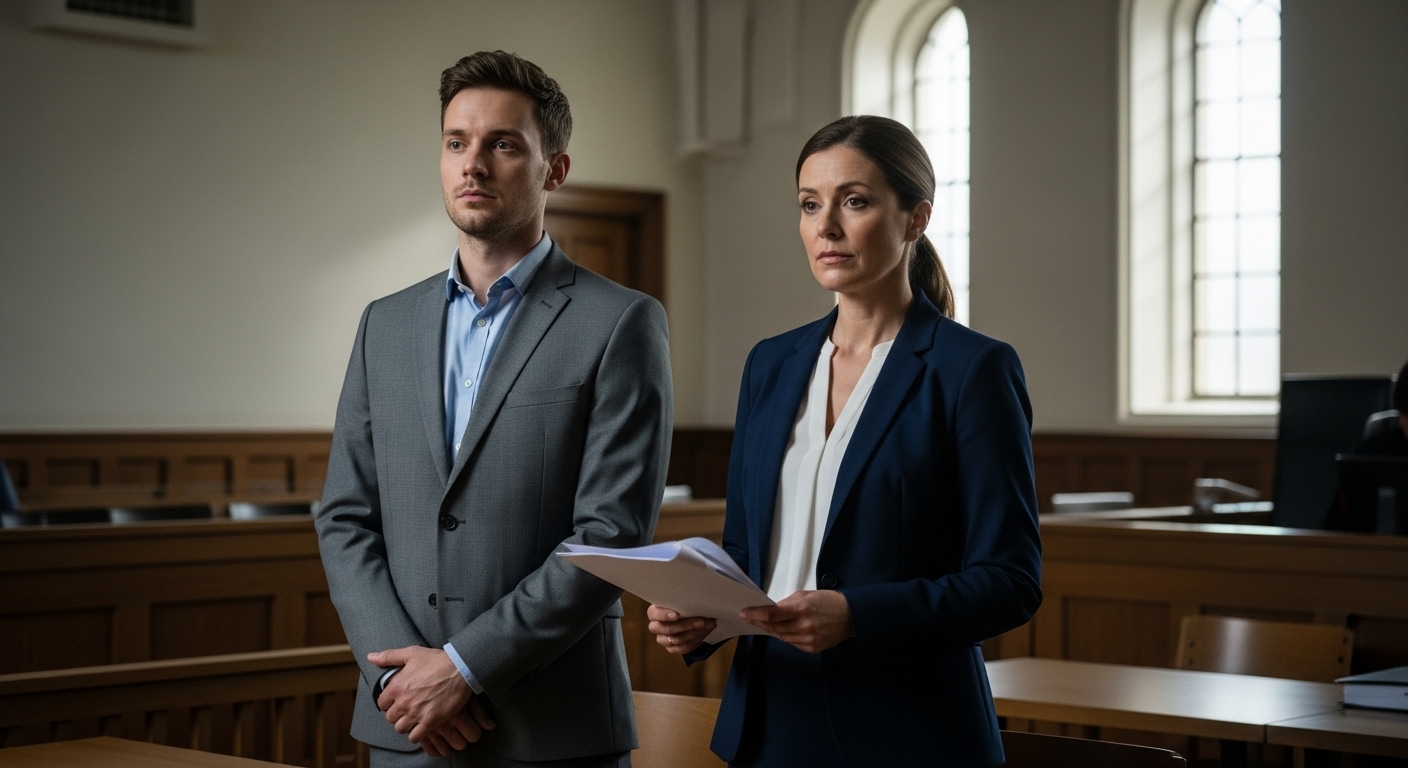Accused of Rape: What to Expect in the Legal Process in England

Accused of Rape: What to Expect in the Legal Process in England
Being accused of rape is a serious and life-altering event that can have severe legal, social, and personal consequences. Rape is one of the most serious criminal offences in England, carrying the possibility of a long prison sentence and a lasting impact on the accused’s reputation and life.
The Legal Definition of Rape in England

Rape, under the Sexual Offences Act 2003, is defined as the intentional penetration of the vagina, anus, or mouth of another person with a penis, without consent, and when the perpetrator does not reasonably believe that the other person is consenting. Consent must be freely given, and any form of coercion, manipulation, or lack of capacity (due to intoxication or other reasons) invalidates consent.
What Happens When You Are Accused of Rape?
If you are accused of rape, the police will conduct an investigation. This often starts with an arrest, followed by a formal interview under caution, where you will be asked to provide your account of events. You have the right to legal representation during this interview. After the police have gathered evidence, the case is passed to the Crown Prosecution Service(CPS), which determines whether to charge you based on the evidential test (is there sufficient evidence for a realistic prospect of conviction?) and the public interest test (is it in the public interest to prosecute?).
Rape Statistics: An Overview of Recent Trends
Recent statistics offer a sobering view of the state of rape accusations, prosecutions, and convictions in England and Wales:
- In the year ending March 2022, there were 70,330 recorded rape offences—an all-time high.
- However, despite this significant number of reported offences, only 3.2% of rapes resulted in prosecution. Of the 70,330 reported rapes, only 2,223 led to prosecution, and only 1,378 resulted in a conviction, yielding a conviction rate of less than 2%.
- Conviction rates for prosecuted rape cases in 2022 stood at 62%, though the overall number of completed rape prosecutions has been falling steadily. The number of completed prosecutions decreased from 5,190 in 2016-17 to 2,409 in 2020-21.
These statistics highlight a concerning trend in the criminal justice system where, despite a high number of reports, only a small fraction leads to prosecution and conviction. This can be due to various factors, including the complexities of evidence gathering, the sensitive nature of rape cases, and challenges surrounding the issue of consent.
Charging Decisions and Recent Trends
When the police complete their investigation, the Crown Prosecution Service (CPS) decides whether to bring charges based on the strength of the evidence. Statistics from 2023/24 highlight some of the key trends in charging decisions:
- In Q1 2023/24, the volume of suspects charged with rape increased by 13.7%, from 666 in the previous quarter to 757.
- The number of referrals from police to the CPS for rape cases also increased for the third consecutive quarter, by 3.5%, from 1,300 to 1,346 in Q2 2022/23.
- Despite these increases, only 5% of reported rapes that were given an outcome by the police in 2021 resulted in a charge. This highlights the low likelihood of charges being brought, even when allegations are made.
Pre-Charge Caseload and Investigations

The period before charges are brought is often marked by delays due to the complex nature of rape investigations, which often involve gathering forensic evidence, interviewing witnesses, and reviewing medical reports. As of Q1 2023/24, the pre-charge caseload for rape cases stood at 64,677, representing a 3.0% increase from the previous quarter. This increase in the pre-charge caseload reflects the pressure on the criminal justice system to process cases efficiently while ensuring that all necessary evidence is collected.
Moreover, the live caseload for adult rape prosecutions increased by 12.8% in Q1 2023/24, rising from 2,686 to 3,031, indicating a growing backlog of cases that have been flagged for prosecution but are awaiting further action.
Prosecution Decisions and Conviction Rates
If the CPS decides to charge the accused, the case will move to court, where the outcome will depend on the strength of the evidence presented. The overall number of completed prosecutions has decreased in recent years, but the conviction rate for those that proceed remains a focal point of concern:
- In 2022, only 3.2% of all reported rapes (2,223 out of 70,330) were prosecuted.
- Of these, the conviction rate for prosecuted rape cases was 62%.
- Conviction rates for rape cases decreased by 7.2% in Q2 2022-23 compared to the previous quarter.
These figures illustrate the challenges in securing convictions in rape cases, even when they make it to court. The complexity of proving non-consent beyond a reasonable doubt and the personal nature of many cases mean that conviction rates remain relatively low.
The Impact of Victim Attrition
One significant challenge in rape prosecutions is victim attrition, where victims withdraw from the process, often due to the emotional toll of the investigation and trial. In Q4 2023/24, non-convictions due to victim attrition decreased by 5.4%, from 74 in Q3 to 70 in Q4. Despite this slight reduction, victim attrition remains a major issue, as victims often feel overwhelmed by the legal process or fear reprisal from the accused.
In many cases, even if the victim withdraws, the CPS may continue with the prosecution if there is sufficient evidence to proceed without the victim’s testimony. However, cases without the victim’s cooperation are generally more challenging to prosecute successfully.
Defending Against Rape Accusations

If you are accused of rape, it is crucial to seek legal advice as soon as possible. Your defence will likely focus on challenging the evidence presented by the prosecution. Common defences in rape cases include:
- Consent: The accused may argue that the sexual activity was consensual and that they reasonably believed the other person was consenting.
- False accusation: In some cases, it may be shown that the allegation was made maliciously or falsely.
- Lack of evidence: If the prosecution’s evidence is weak or inconclusive, this may form the basis of the defence.
Your solicitor will help you build a strong defence by reviewing evidence, interviewing witnesses, and challenging the prosecution’s case.
Sentencing and Penalties for Rape Convictions
If convicted of rape, the penalties are severe. The maximum sentence for rape under English law is life imprisonment, although the actual sentence will depend on the specifics of the case. Sentencing guidelines consider factors such as the use of violence, the vulnerability of the victim, and whether the perpetrator was in a position of trust.
Conclusion

Being accused of rape is an extremely serious matter, with far-reaching legal, social, and personal consequences. While the number of reported rapes has reached an all-time high, with 70,330 cases recorded in England and Wales in 2021-2022, only a small fraction result in charges, prosecutions, or convictions. Recent trends show low prosecution rates, with only 3.2% of reported rapes leading to prosecution and less than 2% resulting in a conviction.
If you are accused of rape, it is essential to seek expert legal advice and representation to navigate the complexities of the legal system. The CPS’s decision to charge will depend on the evidence and public interest, and the outcome will be determined in court based on the strength of both the prosecution and defence cases. The legal process can be long and difficult, but understanding your rights and the process can help you better prepare for what lies ahead.
Notice: Informational Content Disclaimer
The content provided on this website, including articles, blog posts, and other informational materials, is intended for general informational purposes only. It is not intended as, and should not be considered, legal advice.
Visitors to this website should be aware that the information presented here is not a substitute for seeking legal advice from a qualified solicitor or legal professional. Each individual's legal situation is unique, and the information provided may not be applicable to specific circumstances.
If you require legal advice or have specific legal questions, we encourage you to contact us directly. Our experienced team of solicitors is here to assist you with your legal needs and provide tailored advice to address your concerns.
Please be advised that any communication through this website, including the use of contact forms or email, does not create a solicitor-client relationship. Confidential or time-sensitive information should not be sent through this website. To establish a solicitor-client relationship and discuss your legal matters in detail, please contact us for a consultation.
We strive to provide accurate and up-to-date information, but we make no representations or warranties regarding the accuracy, completeness, or suitability of the information contained on this website. We shall not be liable for any reliance placed on the information provided herein.
Thank you for visiting our website. We look forward to the opportunity to assist you with your legal needs.




